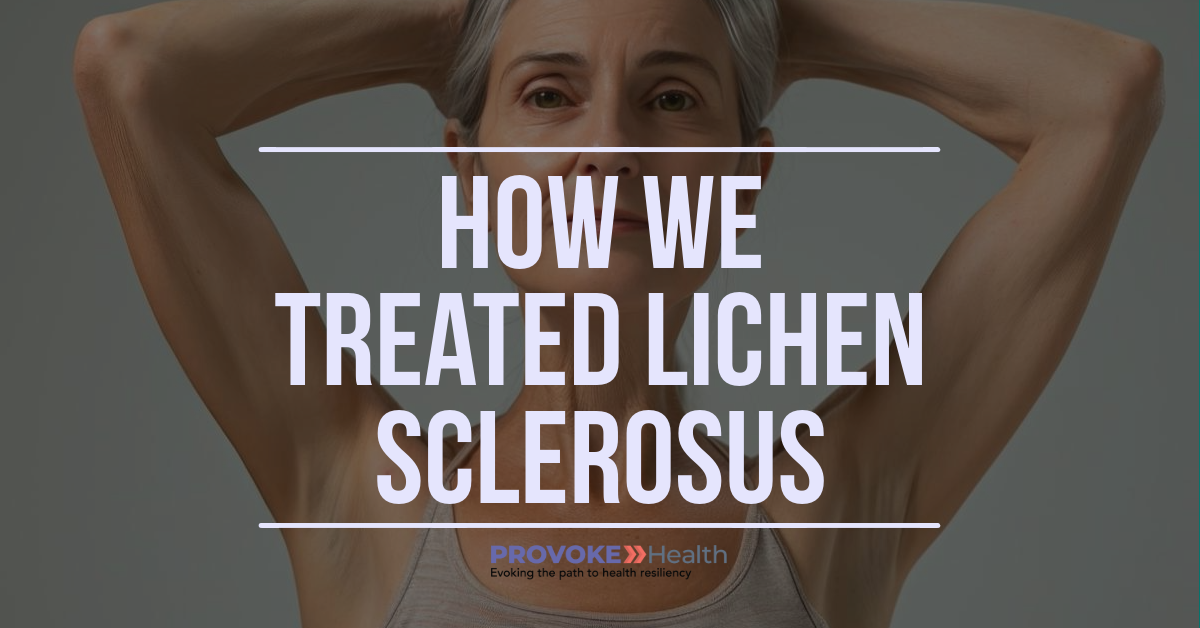Personalized Treatment for Lichen Sclerosus: A Case Study — Part Two
Last week on our blog, one of our patients shared her experience with Lichen Sclerosus and how we have been helping her on her journey to recovery (see “Recovering from Lichen: A Case Study — Part One”).
Janet reported that her symptoms had started 10 years before she visited our Tampa functional medicine clinic, and she was diagnosed three years prior to consulting us. In all that time — despite consulting several doctors — the recommended treatments provided little to no relief.
As part of her intake here at PROVOKE Health, she reported a possible past exposure to mold, so we ordered a mold toxin antibody test, which confirmed the exposure. The positive result led us to understand that mold was aggravating her immune system causing dysregulation and contributing to hormonal imbalances. It’s likely that the problem of Lichen Sclerosus was not solely due to the mold exposure; however, we know it was a contributing factor.

Although Janet reported symptoms of Lichen Sclerosus dating back a decade, upon further discussion, we came to find out that she had suffered from itching for nearly 18 years. This led us to an understanding that mast cells were involved. When mast cells are activated, they secrete histamine along with other inflammatory chemicals called cytokines.
We tested for mast cell activation syndrome (MCAS). She did not test positive for MCAS, but it is a complex illness. Most conditions in conventional medicine are either positive or negative. However, we suspect that MCAS may exist more on a spectrum. Janet could have been experiencing symptoms of MCAS without reaching the threshold of testing positive for it. We find this quite common in our patient population.
This is the nuance of functional medicine. A willingness and readiness to practice in areas that require flexibility and open-mindedness. The question we faced was determining what was continually aggravating those mast cells? In Janet’s case, mold was a contributing factor. For others, it can be a food sensitivity or allergy, another environmental allergy, stress levels, infections, physical exertion, or even a commonly prescribed medication (antibiotic or steroid).
Calming the Mast Cells
Because mast cell reactivity was playing a key role in producing symptoms, we had to calm those cells — make them less reactive. This was a two-step process: Continue reading…




